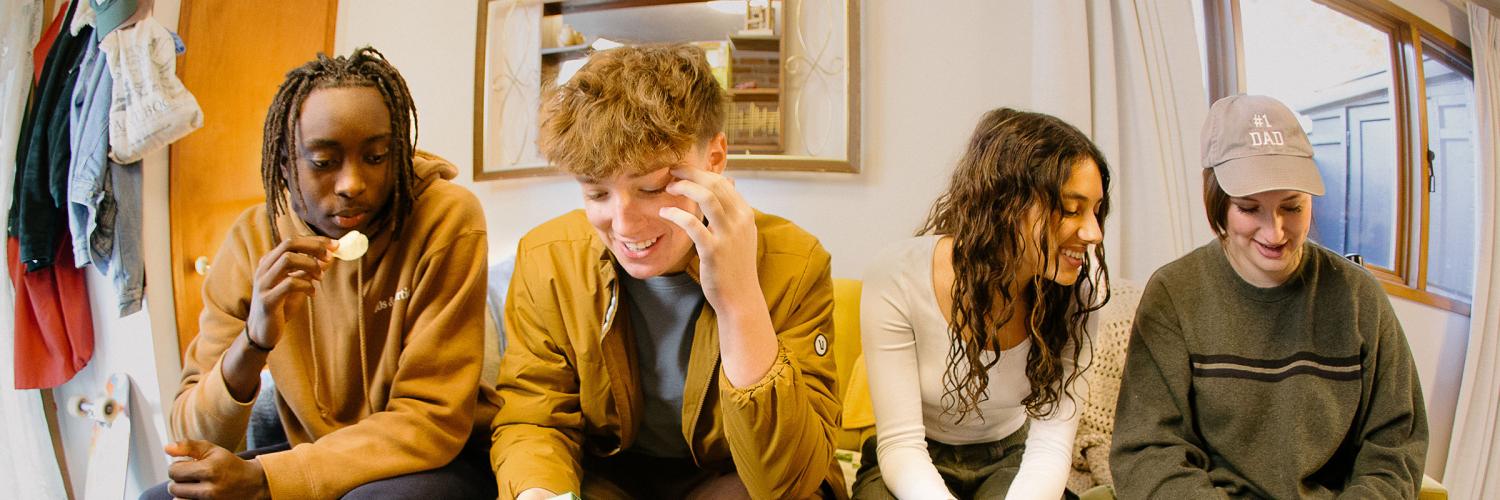When working to prevent overdose deaths in Washington’s communities, funded partnerships with community-based and cultural organizations can be an effective and meaningful way to reach audiences through culturally responsive materials and outreach.
As part of the Friends for Life fentanyl and naloxone awareness campaign, HCA partnered with four community-based organizations (CBOs) to share opioid overdose prevention information directly with the communities they serve.
HCA collaborated with DH, a social impact agency, on the Friends for Life campaign. DH’s vice president of equity and multicultural communications, Paj Nandi, explained the importance of CBO programs and meeting audiences where they are.
"Our audiences are at the heart of everything we do, and our CBO partners who represent and serve priority audiences are closest to their needs, preferences, and desires,” Nandi said. “By directly partnering with CBOs, we can center our audiences' perspectives and voices in more culturally relevant and authentic ways."
After a competitive proposal process last summer, the campaign established funded partnerships with SAFE Yakima Valley, Black Arts Love, Rainier Avenue Radio, and the Community Health Worker Coalition for Migrants and Refugees (CHWCMR). Through the partnerships, the CBOs served as trusted message carriers and led community engagement activities that directly reached audiences disproportionately impacted by substance misuse and overdose.
CHWCMR: Education through connection
CHWCMR builds a statewide support network of community health workers and community partner organizations that ensures migrants and refugees have equitable access to critical health, social, and environmental justice programs and services in their communities.
CHWCMR used their strong community connections to share campaign messages across various online and in-person forums. In addition to individual conversations with community members in Olympia and distributing naloxone and educational materials, they hosted a training session to equip over 150 participants with overdose prevention knowledge and free naloxone kits. CHWCMR also partnered with Yakima Valley College to present about the campaign to students and share a naloxone demonstration.
SAFE Yakima: A pillar in the community
Safe Yakima Valley is a drug-free coalition dedicated to improving and safeguarding their community through youth mentoring, outreach, education, and special events to create positive change.
SAFE Yakima Valley kept the campaign top of mind in their community by boosting the campaign’s social media content and attending several community events, reaching over 7,000 people across Yakima, Benton, and Grant counties. Their staff and peer navigators provided personalized education on overdose prevention to address varying informational needs.
Black Arts Love: Art and advocacy
Black Arts Love is an arts organization committed to uplifting black artists, honoring and celebrating the richness of black culture, and driving economic empowerment.
Black Arts Love took a creative approach to sparking conversations around awareness, hope, and resilience related to the fentanyl crisis. They hosted a statewide art contest, attracting 18 submissions from artists aged 16 to 24, many of whom had personal experiences with addiction. The winning pieces are now displayed in Black Arts Love's newly opened gallery in Seattle’s Central neighborhood, fostering ongoing dialogue and awareness.
Rainier Avenue Radio: Community conversations
Rainier Avenue Radio is a digital media hub dedicated to amplifying the diverse voices of south Seattle.
Rainier Avenue Radio brought the campaign’s messages to their listeners by hosting a variety of on-air and in-person segments, including panel discussions, workshops, expert interviews, and educational segments. These efforts reached broad and diverse audiences with critical information about fentanyl and naloxone.
By collaborating with organizations that are deeply rooted in their communities, the Friends for Life campaign is expanding overdose prevention in culturally relevant ways and empowering communities to educate and protect themselves and their loved ones against the risks of illicit fentanyl.
